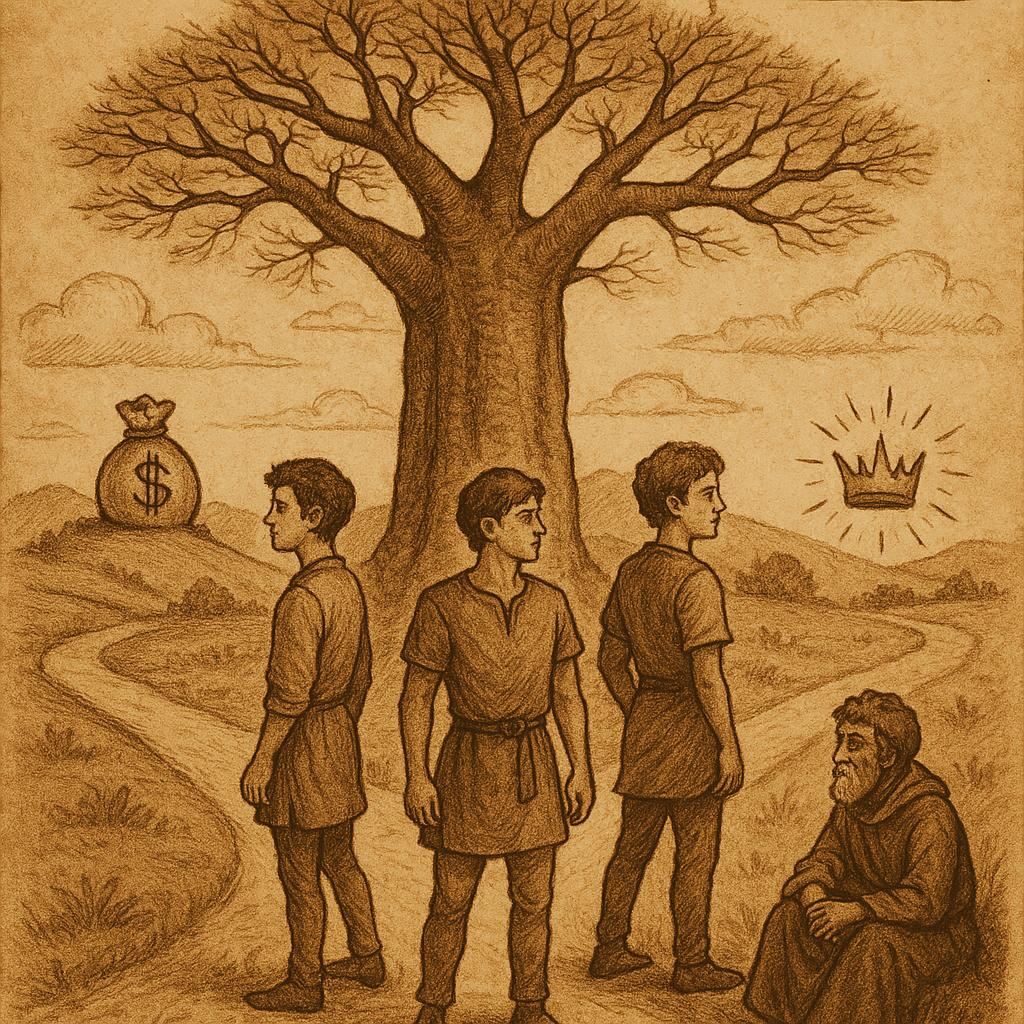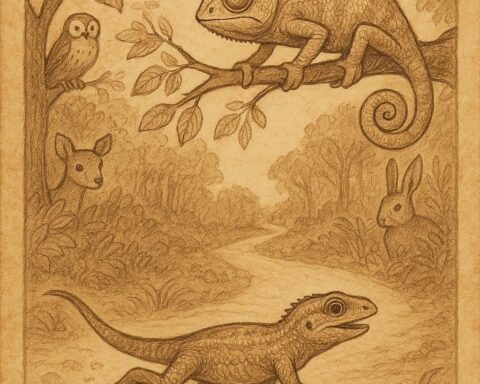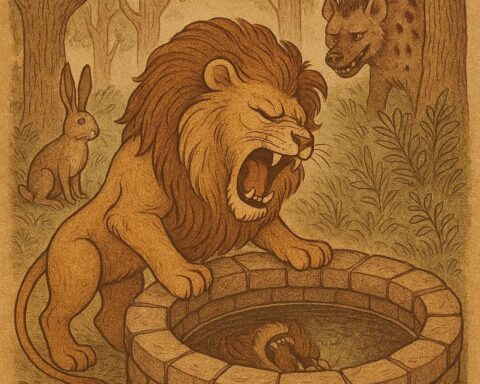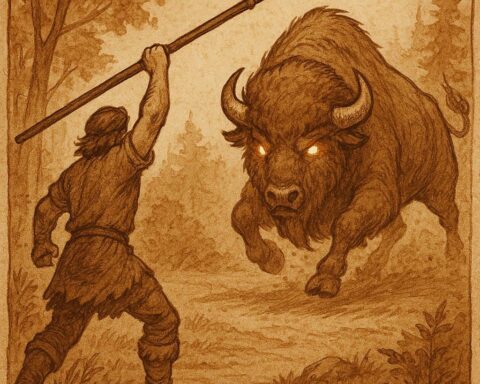Long ago in a Guinean village nestled between rolling hills and winding rivers, there lived three young men who were bound by friendship but divided by restless dreams. Each was strong, clever, and admired by his peers. Yet each carried a hunger in his heart for greatness beyond what the quiet life of farming and family could offer.
The first young man dreamed of wealth. He longed for gold, cattle, and vast fields that would make him richer than any elder in the village. “If I have riches,” he told himself, “all will bow before me and my name will be remembered.”
The second young man craved power. He wanted to rule, to sit on a throne where others would obey his word. “If I become a leader,” he thought, “I will shape the world as I please and no one will challenge me.”
READ THIS: The Mandinka Hero of Guinea
The third young man sought fame. He wished for songs to be sung about him, for griots to tell his story across Guinea. “If I am remembered in tales,” he whispered, “then I will never truly die.”
Though their ambitions were different, the three friends shared one belief: that greatness lay somewhere beyond the village, waiting to be seized. So one morning, they set off together on a long journey, leaving behind their families and the wisdom of their elders.
As they traveled, they came upon an old man sitting under a baobab tree. His beard was long, and his eyes sparkled with knowledge. He greeted them and asked, “Where are you young men going in such haste?”
The first replied, “I seek wealth, more than any man has ever possessed.”
The second said, “I seek power, to rule and command.”
The third declared, “I seek fame, so that my name will live forever.”
The old man shook his head slowly. “Ambition is like fire. It can cook your food or burn your house. Beware of its hunger.” But the young men only laughed and continued on their way.
Their path soon divided. Each chose his own road, for wealth, power, and fame could not be found together.
The first young man came upon a village struck by famine. He traded food he carried for their gold, growing rich as the villagers grew weaker. At first he rejoiced, counting his treasure under the moonlight. But soon the starving villagers rose against him, angry at his greed. They chased him from the land, and he wandered alone, clutching gold that could not feed his stomach.
The second young man found a people at war. He offered his strength and courage, fighting with skill until the warriors made him their leader. At last he held power. But with power came envy. His rivals plotted in the shadows. One night, while he slept, they overthrew him. Cast out, he fled through the wilderness, a leader with no followers, his power gone like smoke in the wind.
The third young man met a griot who sang of ancient heroes. “Make me famous,” he begged. “Sing my name so all will know me.” The griot agreed, but only if the young man performed deeds worthy of song. In his eagerness, the youth took reckless risks, challenging warriors, hunting lions, and boasting loudly of victories. But in the end, his rashness led him into danger he could not escape. His story was sung indeed, but as a warning, not a praise. His fame came in death, not in honor.
At last, the three young men, broken by their own desires, returned to their village. They had left as friends full of pride but came back as men humbled by failure. The elders gathered to hear their stories. When they finished, the oldest among them spoke:
“Wealth without kindness is empty. Power without justice is dangerous. Fame without wisdom is a curse. You left seeking greatness, but you forgot that true greatness is found in balance, patience, and service to others.”
The three ambitious ones bowed their heads, for they knew the truth of the elder’s words. Though they had learned too late, their tale lived on as a lesson for future generations.
Moral Lesson
This Guinean folktale teaches that ambition without wisdom destroys rather than builds. Wealth, power, and fame may tempt us, but without moderation, kindness, and patience, they bring ruin instead of honor. True greatness lies in balance and service to others.
Knowledge check
What central lesson does the Guinean folktale The Three Ambitious Ones teach?
It teaches that unchecked ambition leads to downfall, and true greatness comes from balance and wisdom.What did the first young man desire in The Three Ambitious Ones?
He desired wealth above all else, but his greed led to his ruin.How did the second young man gain and then lose power in The Three Ambitious Ones?
He became a leader through courage, but jealousy and betrayal from rivals caused him to lose his power.Why did the third young man seek fame in The Three Ambitious Ones?
He wanted griots to sing his name forever, but his reckless pursuit of fame led to his death.What advice did the old man under the baobab give in The Three Ambitious Ones?
He warned that ambition is like fire: it can be useful if controlled but destructive if left unchecked.Why is The Three Ambitious Ones considered an important Guinean folktale?
Because it highlights cultural values of moderation, humility, and wisdom over greed and pride.
Source: Contes de Guinée, collected by Djibril Tamsir Niane.






